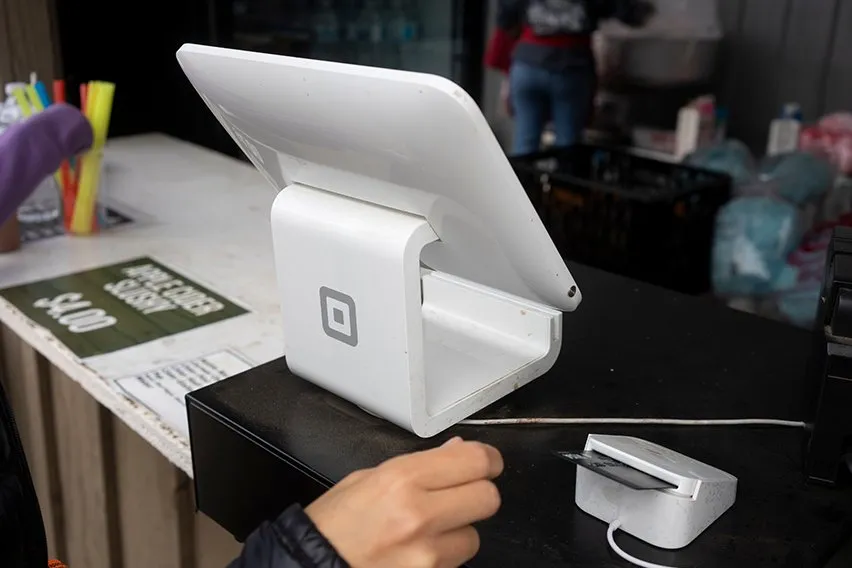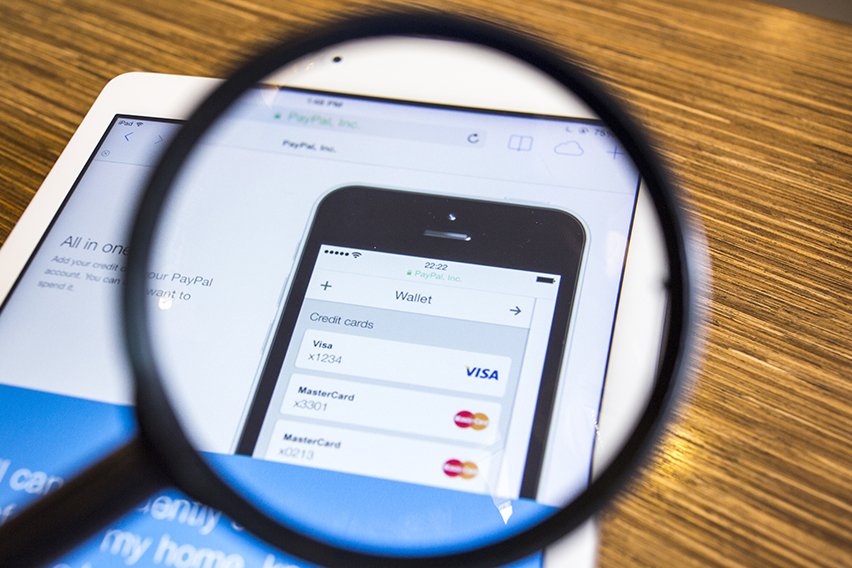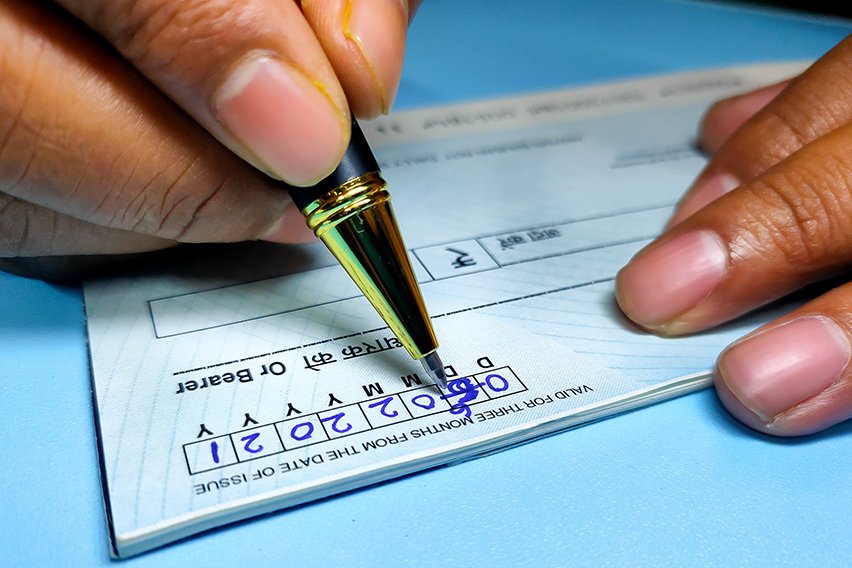Complete Guide to the 5 Best Credit Card Processors

If you’re looking for a credit card processor, this guide is going to help.
We know that finding the right credit card processor can be a daunting task. We’ve broken down everything you need to know about choosing one in this easy-to-digest guide. From what it is and how it works, to why merchants should use them and who they work best with, we cover all of your questions in detail.
You will learn which processors are best suited for certain types of businesses. We also discuss those that might not be the best choice. Plus, our top 10 list breaks down each processor and discusses the 5 best available today. With this guide, you can make an informed decision on which one is right for your business needs.
Here’s What We’ll Cover:
What Is a Credit Card Processor?
What Do Credit Card Processing Companies Charge?
Why You Need a Credit Card Processor
Top 5 Best Credit Card Processors
Important Questions to Ask Your Potential Payment Processor
What Is a Credit Card Processor?
A credit card processor is a company that connects merchants with different credit card companies. They are also known as acquirers.
The biggest way these processors can help your business is to accept payments online from customers using their credit or debit cards. There are quite a few benefits to this. Most importantly, you get to eliminate the middleman when it comes to taking payments.
Credit card processors also offer more than just accepting consumer credit cards. They will often process debit transactions as well, including ACH and eCheck transactions.

How Do Credit Card Processors Work?
The way the credit card payment processing system works is rather complex. We won’t get into all of that here, but we do want to give you the basics of how it works, so you can better understand how credit card processors are able to help.
Here’s how it breaks down. When a customer wants to purchase something, they will swipe their card or enter their information at checkout. These machines usually have a slot for the customer to slide their card.
The first thing that’s happening is that your customer is entering their information into the machine. The machine then sends it over to the processor for processing. They are verifying that there are enough funds in your account and other details like this. Once everything checks out, the payment will be authorized. The authorization comes back from the processor and tells you that you can go ahead and collect payment from your customer.
From there, the merchant is responsible for collecting the funds. Once your customer pays their bill, they should receive a receipt with all of their information on it. At this point, the process is essentially over until it’s time to send out bills or payments.
What Does a Processor Do?
As we have already mentioned, processors help you take payments from your customers. Another important function of the credit card processor is that it will provide your business with a virtual terminal. This is where you can set up different point-of-sale transactions and check your account balance.
In addition, processors work to secure your information as well as keep it safe from fraud. As a business owner, you may not have the resources or knowledge to protect your data from hackers or other threats. By working with a credit card processor, you can rest easy knowing that they are dealing with this aspect of your business.
What Do Credit Card Processing Companies Charge?
When you’re looking into credit card processors, there are a few main fees that you will have to consider. You need to be aware of them so you know what kind of budget you’ll need.
The first is a per-transaction fee. This is a small fee that gets charged every time your customer uses their credit card to make a purchase. These are also known as an interchange fee or credit card processing fees. These can be a flat rate or tiered.
Next, there are monthly fees. These may apply even if you don’t process any transactions during a given month. Be sure to ask about this fee before you sign on with a credit card processor so that you know what these costs will be.
There are also fees that are charged when you make refunds to customers. This can be a downside for many business owners. It is important to know about the potential costs involved before starting any merchant account agreement.
Why You Need a Credit Card Processor
There are many reasons why you need a credit card company as part of your business. There are countless benefits to accepting credit cards at your point of sale. It is really the only way that you can expect to be successful in this day and age.
For starters, your customer will appreciate being able to use their card when making a purchase from you. It makes the process much simpler for them. It also increases your chances of them wanting to come back and shop with you again.
It also allows for simple record keeping. Since everything is handled electronically, it makes the job of keeping track of payments much easier. This can help you to get paid faster and work more efficiently.
Credit card payments are also very secure. This should be one of your primary concerns as a business owner. Credit card processors will keep your information locked down and protect it from hackers or other forms of data theft.
Now that you know more about processors, let’s get into the list of the top ten best credit processors.
Top 5 Best Credit Card Processors
In this section, we will be going over the top ten best credit card processors. This list is arranged from number 1 to number 5. We hope that you find this information useful and informative as you read on!
1. Stripe
Stripe is a web and mobile platform that enables entrepreneurs to accept payments from customers. It’s an easy way to integrate your business with just a few lines of code on any website or mobile app, and payment info pops up automatically when customers check out.
They use 256-bit encryption technology to keep your information safe, and their 24/7 fraud protection team monitors things to keep your account safe.
Pros:
- Accept credit cards on your website and mobile payments
- No monthly fees
- Easy to integrate with any website
- No minimums for swipes and no per-transaction fees
- Accepts debit card payments
Cons:
- Would not recommend it for startups just starting out or if you’re looking for a customizable solution.
Which Business is Best for Stripe?
Stripe is best for entrepreneurs who already have an online presence and customers. While Stripe does also provide services for brick and mortar businesses, it’s not the best choice if you only want to accept credit cards in person. This processor would be ideal for anyone looking to get started with accepting payments online without spending too much time figuring things out. If you’re a small business owner with an online presence, Stripe is perfect for you.
2. Square
Square allows you to take payments anywhere, whether it’s in person or online. They offer a free card reader that attaches to your phone or tablet headphone jack and instantly turns these devices into credit card machines. Once you swipe the customer’s card, you can accept the payment right then or process it later.
You won’t have to pay any monthly fees since there are no contracts here, plus their app makes managing your business on-the-go easy with lightweight data collection features and instant access to sales reports.
Pros:
- No contracts means start up costs are lower than most processors
- No minimums for swipes or per-transaction fees
- Free mobile credit card readers
- No hidden costs
- Good for many business types
- Free credit card reader
Cons:
- The app is very simplistic and not as robust as some other options on the market.
- No contactless payments
Which Business is Best for Square?
Anyone looking for a straightforward solution that doesn’t have too many extra features. Square is great for small businesses with simple needs like retail stores, temporary pop-up shops, and food trucks. The free app can come in handy too if you need to check your sales stats on the go. Since this solution is so straightforward it doesn’t matter what kind of business you are looking to accept credit cards for, this is an easy option that won’t break the bank.
3. PayPal
PayPal is the world’s leading online payment system. It allows your customers to make secure purchases without sharing any of their credit card information. Merchants also receive payouts quickly, with funds available in their account within one business day.
You can choose between two ways to accept payments. The first option is a customizable checkout experience that allows you to use PayPal as a gateway on your website. You can also use a PayPal Here card reader that you can use in person. PayPal will send you the card reader free of charge.
Pros:
- Sell anywhere with customizable options
- Get paid up to three days faster than other processors, and at no extra charge for debit card transactions
- Your customers don’t have to give out their credit card information when they pay you
- Acts as a mobile wallet
- Grreat for online transactions
Cons:
- May not be the best for international markets
- Higher transaction costs
Which Business is Best for PayPal?
Merchants who want to sell their products both online and in-store. Since PayPal provides an option that works on any website, it’s easy enough to use it for both. Plus, the fact that you get paid faster than most processors is a great perk. Since there are no contracts and you can start using PayPal Here right away, this is an ideal solution if you’re looking for flexibility without any extra costs.
4. Shopify POS
Shopify is a complete online solution for running your business. It includes custom themes, detailed analytics tools, and different marketplaces where you can find everything from design-your-own logo templates to customer photos. It also offers a point of sale system called Shopify POS. This allows merchants to process credit cards in person through a card reader or mobile device. While this feature isn’t free, it’s included with your monthly payment for the base level plan, which starts at $29 per month.
Pros:
- A single platform means you have one place for all your customer information and selling tools
- Your merchant account is included as part of the monthly Shopify plan. This means there are no extra fees associated with accepting credit cards here
- Great analytics tools that give you a clear picture of what’s going on in your business
- Accepts chip cards
Cons:
- You can’t use advanced business tools like gift card programs or invoicing for free. You have to pay extra for those.
Which Business is Best for Shopify?
Businesses that want a complete platform to manage their e-commerce presence and in-store sales. Also merchants who don’t want to spend extra money on using other marketplaces, additional features, or advanced analytics. Plus, the monthly plan lets you pay for all this at a fair rate without any surprise fees.

5. Lightspeed Retail
Lightspeed is easy to use, but it has enough power under the hood to help you run a successful retail business. Inventory management is built right in. This makes it ideal for anyone who wants to keep their stock synced between different locations. Lightspeed automatically pulls any changes made online into your POS system. This ensures there is a consistent view of your products, no matter where you are working. In terms of credit card processing, this system makes it easy to set up a payment terminal that will process any major credit card. It also gives you the ability to run gift cards and other special offers.
Pros:
- Includes inventory management tools to monitor all locations from one spot
- QuickBooks compatibility allows you to share customer and inventory information with your bookkeeping software
- Card readers can be used anywhere and support all major credit cards, even chip & PIN transactions
Cons:
- Mobile card reader may not be compatible with all phones or tablets
Which Business is Best for Lightspeed?
Businesses that want a retail POS system without paying extra for some of the more advanced features. Plus, merchants who want to use their current credit card machine or create a customized reader with Lightspeed Retail SDK (software development kit).
Important Questions to Ask Your Potential Payment Processor
Make sure all your bases are covered by asking the following questions:
- What fees will this company charge me?
- Is there an early termination fee or cancellation penalty?
- What equipment is included free of charge? How much does each piece of additional equipment cost?
- What can I do with this equipment?
- What kind of reporting tools are included in the package?
- Does the company offer a free trial period or any other type of promotion?
- How does their customer service stack up to their competitors?
- How long have they been in business and how many locations do they support?
Key Takeaways
Any good credit card processor should offer the ability to set up a payment terminal that can read major credit cards and support all e-commerce transactions. This means you won’t have to pay extra to process gift cards, invoices, or other special offers through your system.
The best credit card processing solutions will also offer intuitive tools like reporting, inventory management, and customer service. Customization is important too. Be sure you have the freedom to create a payment terminal that best fits your business needs. Don’t forget about fees either! Credit card processors make most of their money off of processing charges or through cancellation penalties.
Many merchants will find it difficult to choose from the vast array of payment processors on the market. The top 5 credit card processors listed above are a great place to start your research. They all provide leading equipment and software solutions that will help you build your business.
The best solution is going to depend on what you need out of a processor, so take your time and find one that matches your individual needs.
If you’re looking for more information like this, check out our resource hub!
RELATED ARTICLES

 Virtual Credit Cards: What Are They & How Do They Work?
Virtual Credit Cards: What Are They & How Do They Work? What Is a Secure Payment System?
What Is a Secure Payment System? What Is an eCheque & How Does It Work?
What Is an eCheque & How Does It Work? What Is a Credit Balance?
What Is a Credit Balance? 5 Best Online Payment Methods In 2024
5 Best Online Payment Methods In 2024 What Is a Stale-Dated Cheque?
What Is a Stale-Dated Cheque?